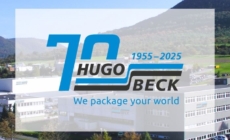-
Nutrivend selects Forterro’s Orderwise to support online expansion and streamline operations - April 11, 2025
-
ARROWXL LAUNCHES AMBITIOUS ZERO WASTE ROADMAP - April 8, 2025
-
THE BCMPA’S NEW CAMPAIGN DRIVES OUTSOURCING SUCCESS IN Q1 - April 7, 2025
-
BLACKOUT TECHNOLOGIES TARGETS TELEMATICS-INTEGRATED MOBILE DEVICE BLOCKING TO COMBAT SMARTPHONE DISTRACTION - April 1, 2025
-
OpenADR Alliance announces first OpenADR 3.0 certified products with EVoke Systems, E.ON Energy and Universal Devices - March 25, 2025
-
Growing fulfilment and contract packer appoints new Managing Director - March 25, 2025
-
When is it time to invest in a WMS? Understanding the key trigger points - March 25, 2025
-
eCapital helps Vantage Recruitment on its journey to financial success - March 24, 2025
-
Hugo Beck Celebrates 70 Years of Packaging Innovation with Open House Events - March 20, 2025
-
PROLOG FULFILMENT SUPPORTS LUNA DAILY’S COMMITMENT TO BETTER BODY CARE FOR ALL WOMEN - March 19, 2025
Forterro study highlights a strong focus on cloud ERP, although two-thirds say that cloud is an untapped opportunity in their company
New research has shown the potential cost of ERP downtime, with the average UK midmarket ecommerce firm expecting to lose £26,578.95 in a single day of ERP outage.
The study from European ERP provider Forterro also revealed that half of respondents foresee staff downtime if their ERP system goes down for the day, while 47% anticipate reputational damage, highlighting the critical role of ERP availability.
The penetration of cloud ERP in the sector was high, with 87% using cloud-based or hybrid systems. The main benefits cited were ease of backup and accessibility (43%), high availability (41%), and greater processing speed and performance (40%). Despite the ubiquity of cloud ERP, almost two-thirds (64%) of respondents say that cloud is an untapped opportunity for their company. 41% believe their organisation’s lack of effective cloud usage means they aren’t seeing the benefits of technologies such as AI and IoT.
“Ecommerce is one of the most competitive sectors, and those operating within it have to differentiate themselves with service excellence,” said David Coste, President, North & Western Europe, Forterro. “ERP is instrumental in helping deliver that excellence, and its importance to ecommerce is illustrated by the potential fallout should it not be available. The lost revenue is one thing, but the long-term reputational damage could be disastrous, so constant availability is imperative.”
ERP has become a much-valued technology for ecommerce firms. The key benefits of ERP mentioned were real-time data (59%), increased efficiencies (57%) and fast reporting and analysis (56%). When it came to future technology priorities, 43% of respondents identified security and safety as their top priority, reflecting industry concerns about the volume and severity of cyberattacks. More than one-third (36%) said cost reduction was a major future priority, and 32% said improving the supply chain.
The main challenges in UK midmarket ecommerce overall were the ongoing global economic and political uncertainty (40%), maintaining a strong sales pipeline (39%) and talent retention and acquisition (36%).
“UK ecommerce firms are facing a variety of challenges that make their existence that bit harder, so business leaders must do all they can to protect themselves now and in the future,” continued Coste. “Technology is a key element in that process, and cloud ERP can be fundamental for any ecommerce firm, helping to increase operational efficiencies and unlocking potential within other technologies.” The UK Midmarket Ecommerce Report: Key Tech Trends, Best Practice and Future-Proofing is available to download here: https://www.forterro.com/en/uk-midmarket-ecommerce-report

































